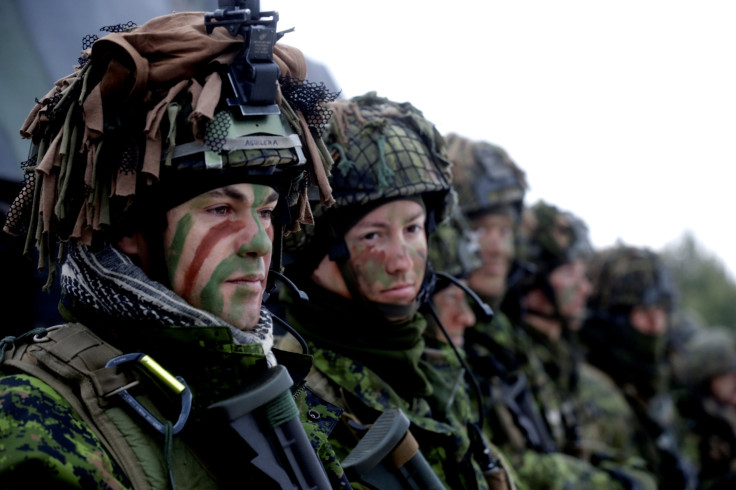Russia Sells Lithuania Weapons Of War Amid NATO Army Exercises In The Baltics

Looking to fill gaps in its military force, Lithuania reached a deal with Russia to buy 168 armored personnel carriers, Defense News reported Thursday. Russia was expected to start delivering the vehicles in 2017 and 2018.
“The Lithuanian Armed Forces are buying command, indirect fire support, medical evacuation and training [variants of the] M577 armored personnel carriers [to] fill in the shortages of armored vehicles in the Lithuanian land force,” Lt. Col. Ramunas Baronas, the commander of the Lithuanian military’s Logistic Support Command, said in a statement.
Lithuania has been upgrading its military in light of recent Russian aggression in Eastern Europe, including the annexation of the Crimean Peninsula in March 2014. For the 2017 fiscal year, Lithuania is allocating $768.9 million for its military, which is a roughly 26 percent increase from the year before. Forty-three percent of that money will go towards new weapons and military equipment allocations in addition to infrastructure investments.
The situation in the Baltic region lately has been uncertain as a result of the election of President-elect Donald Trump, who repeatedly pledged to cut back on U.S. NATO commitments in the region. Troops from nearly a dozen NATO countries met in Lithuania this week to perform battle tests in the snowy region in what was perceived as a statement to Russia about the strength and endurance of the American commitment in the region.
“The United States has been the guarantor of peace since the Second World War and we expect that to remain," Lithuanian President Dalia Grybauskaite said after inspecting the troops, according to Reuters. "Things mentioned in (Trump's) election campaign - we are leaving them in the past."
Defense systems in other parts of Europe have been boosting their defense capabilities recently as well. That includes Sweden, which recently reinstalled Cold War-era anti-ship missile launchers to warn against aggression.
© Copyright IBTimes 2025. All rights reserved.






















